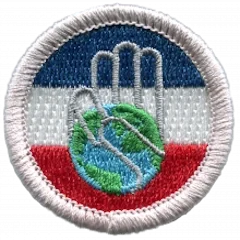
Citizenship in Society Merit Badge
Monday, November 10, 2025 | 5:30 – 9:00pm
RESA Service Center
1000 Apollo Way, Suite 106
Santa Rosa
♦ Limited to 16 Scouts
♦ Must be First Class rank or higher and approved by your Scoutmaster
♦ Must have completed prerequisites – see below
♦ Unlike traditional Merit Badges, Citizenship in Society requires Scouts to undertake independent research about diversity, equity and inclusion. There is NO published merit badge pamphlet. Instead, Scouts discuss what they have researched on the 11 requirements with the other members of their Cohort. Merit Badge Counselors act as Facilitators to ensure discussions stay on-topic. They may give guidance through questioning but never give answers or offer their own personal opinions.
♦ As with all Merit Badges, a Scout who wishes to take the Citizenship in Society Merit Badge should begin by talking with their unit leader. Scouts must be First Class rank or higher. Exceptions are managed at the discretion of the Merit Badge Counselor.
♦ Scouts must come prepared with the following requirements completed prior to the Merit Badge. This is different from any other Merit Badge session. The Merit badge Counselor will facilitate discussion based on research and reflection done by Scouts PRIOR to the Merit Badge session. – see the list below.
1a. Research the following terms, and be prepared to discuss how you feel they relate to the Scout Oath and Scout Law:
• Identities • Inclusion • Diversity • Discrimination
• Equity • Ethical Leadership • Equality • Upstander
2. Document what leadership means to you. Share what it means to make ethical decisions.
a. Research and share with your counselor an individual you feel has demonstrated positive leadership while having to make an ethical decision. (It could be someone in history, a family member, a teacher, a coach, a counselor, a clergy member, a Scoutmaster, etc.)
b. Explain what decision and/or options that leader had, why you believe they chose their final course of action, and the outcome of that action.
3. Consider ethical decision-making.
a. Think about a time you faced an ethical decision.
• Discuss the situation, what you did, and how it made you feel.
• Share if you would do anything differently in the future and if so, what that would be.
5b. List three examples of ethical decisions you might have to make in the future at school, at home, in the workplace, or in your community, and what you would do.
• Share how your actions represent alignment with the Scout Oath and Scout Law
c. Explain to your counselor how you plan to use what you have learned to assist you when that time comes, and what action(s) you can take to serve as an upstander and help other people at all times.
5. Document and discuss with your counselor:
a. Ideas on what you personally can do to create a welcoming environment in your Scouting unit.
b. An experience you had in which you went out of your way to include another Scout(s) and what you did to make them feel included and welcomed.
c. Things you can do to help ensure all Scouts in your unit are given an opportunity to be heard and included in decision-making and planning.
8. With the help of your parent or guardian, study an event that had a positive outcome on how society viewed a group of people and made them feel more welcome. Describe to your counselor the event and what you learned.
9. Document and discuss with your counselor three or more areas in your life outside of Scouting where you feel you can actively provide stronger leadership in.
a. Making others feel included.
b. Practicing active listening.
c. Creating an environment where others feel comfortable to share their ideas and perspectives.
d. Helping others feel valued for their input and suggestions.
e. Standing up for others.
10c. Give three examples of how limiting diverse input can be harmful.
10d. Give three examples of how considering diverse opinions can lead to innovation and success.